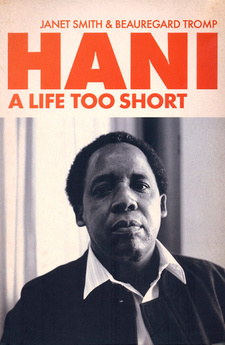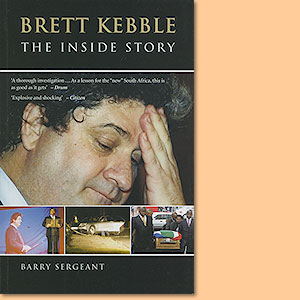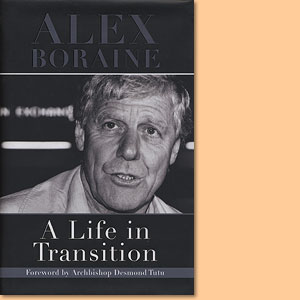Hani: A Life Too Short, by Janet Smith and Beauregard Tromp

Hani: A Life Too Short, by Janet Smith and Beauregard Tromp. ISBN 9781868423880 / ISBN 978-1-86842-388-0
Chris Hani’s assassination in 1993 gave rise to one of South Africa’s great imponderables: if he had survived, what impact would he have had on politics and government in South Africa? Janet Smith and Beauregard Tromp look for answers.
It was late November 2007, and the rivalry between Thabo Mbeki and Jacob Zuma dominated the headlines after months of brazen animosity. The two were about to face off at the ANC's 52nd national conference, to be held at the University of Limpopo in Polokwane, and neither man could afford to lose. The meeting became the nastiest dust-up in ANC history since the historic conference at Morogoro, Tanzania, in 1969. For the first time in nearly 40 years, the ANC was challenged from within by clashing egos and, to a lesser extent, ideology. Mbeki, not so much an ideologue as a man with a formidable ego, could not escape the fact that his name had been a key factor at both meetings. But another name was consistently evoked in the run-up to Polokwane, just as it had also been, very prominently, at Morogoro. That name was Chris Hani. And the reason his name kept coming up in 2007 was because the ideals of the assassinated SACP leader and former MK commander so readily transcended the savage fights being managed between Luthuli House and the Union Buildings. Quite simply, Hani believed that liberation should free the poor from hunger and landlessness. He cherished nonracialism. He rejected personal power. Surely these had always constituted the shared vision of the movement? So, as preparations for the conference in Limpopo heated up, the faithful kept asking: what would Hani have done? He had only once attempted to challenge for high office within the party - the position of deputy president. That had been at the first conference back home in 1991 after FW de Klerk had unbanned the liberation movements a year earlier. But both Hani and Thabo Mbeki, his rival for that post, were persuaded to step back in favour of the revered Robben Islander and confidant of Nelson Mandela, Walter Sisulu. At that time, the ANC was determined to present a united front. The same had been true at Morogoro in 1969, when a controversial document drafted by Hani and others had criticised corruption within the leadership. This had created deep distress within the liberation movement, and it was only the intervention of then ANC president OR Tambo that had saved Hani's political future and restored some order. The gloves were off by the time Polokwane rolled around. No Hani. No OR. No niceties. But certainly many parallels. Indeed, what would Hani have done, where would he have been, had he not been murdered by Polish right-winger Janusz Walus on 10 April 1993? At Polokwane, an otherwise ordinary town in the thornveld on the Great North Road to Zimbabwe, it was do or die. Would Hani, who has been committed to lore as perhaps South Africa's only quintessentially romantic guerrilla fighter, be properly honoured as what some within the ANC called a living link' between the rough times of 1969 and 2007? Watching events unfold in the run-up to Polokwane, we were struck by how little was known about Hani. Paging through archived interviews with the then avowed communist, the same facts always seemed to come up - his love of the classics, his personal charm and his revolutionary fervour. There was little insight into the fabric and texture of the man who died too soon. So as journalists at The Star we started a journey, aimed at coinciding with the 15th anniversary of his murder, that would give the newspapers readers a deeper understanding of his life and ideology. As we found out more about his life, we discovered that the events we were witnessing firsthand as the ANC shuddered before Polokwane - and afterwards, when Thabo Mbeki resigned and the ANC split when the Congress of the People was launched - were in no way unique. And Hani, always prescient, had noted in 1969 what he called 'the rot,' and warned vociferously against it again before he died. [...]
This is an excerpt from the biography: Hani: A Life Too Short, by Janet Smith and Beauregard Tromp.
Title: Hani: A Life Too Short
Authors: Janet Smith, Beauregard Tromp
Type: Biography
Publisher: Jonathan Ball Publishers
Johannesburg, South Africa 2011
ISBN 9781868423880 / ISBN 978-1-86842-388-0
Softcover, 13x20 cm, 338 pages, several b/w photos
Smith, Janet und Tromp, Beauregard im Namibiana-Buchangebot
Hani: A Life Too Short
Hani: A Life Too Short provides a detailed account of the life of a great South African.
Weitere Buchempfehlungen
Brett Kebble - The Inside Story
Investigates Kebble’s dark secrets and explores his relationships with some of South Africa’s ‘new elite’
A Life in Transition. Alex Boraine
Alex Boraine's fascinating life of fighting injustice in South Africa.



